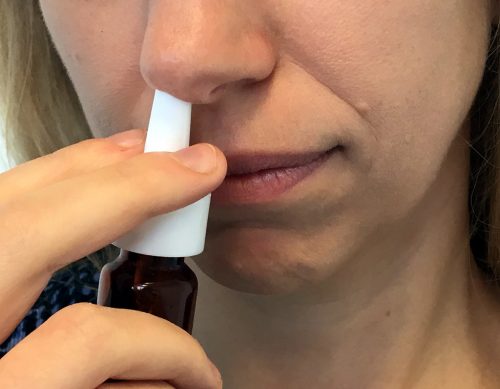Image courtesy of Flickr.
A new COVID-19 vaccine is being produced in the form of a nasal spray by researchers at the University of São Paulo, in Brazil. Initial tests for this new form of immunization using mice infected with hepatitis B have yielded promising results.
In this vaccine, a nanoparticle is used to contain one of the proteins found in SARS-CoV-2. Through nasal applications in four doses, the idea is that the mucosa of the nostrils will absorb this nanoparticle, stimulating the immune system to produce antibodies called IgA Secretoram, which help combat the virus.
In addition to being more easily accessible, the nasal mucosa is, for many pathogens including the coronavirus, one of the main barriers of entrance into the body. Consequently, it is also one of the capable mucosas in the body for the development of an immune response, which makes it an interesting vaccine target.
Researchers estimate that animal trials for this vaccine could be ready to begin in three months. Once it is made available to the public, it should cost around 20 US dollars.
(via UOL, São Paulo, 2020.)

